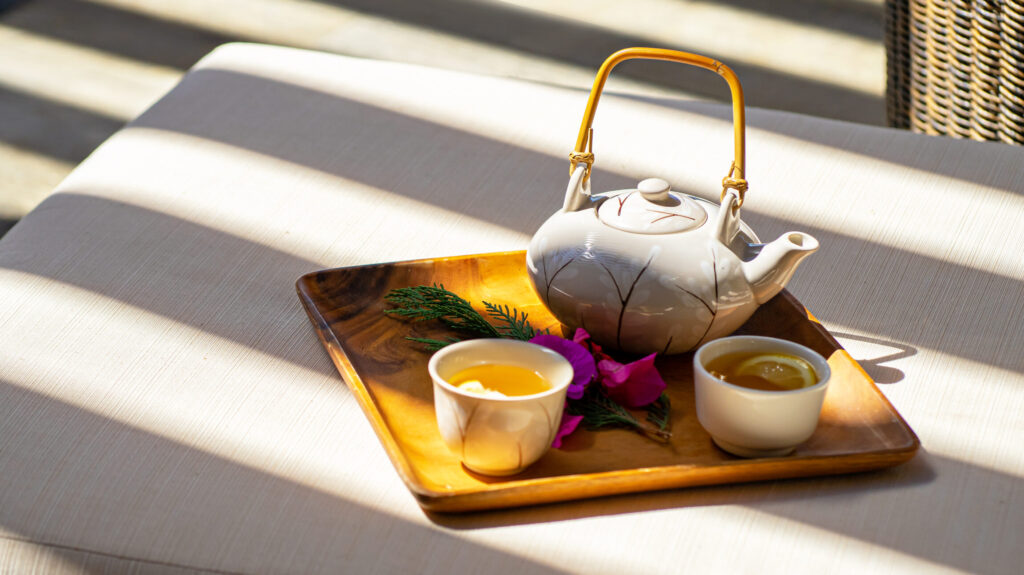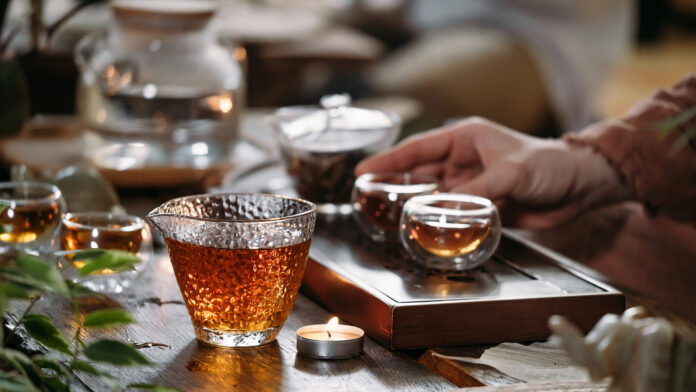By The Frontpage Journal
Sri Lanka’s global reputation as a producer of fine tea is well known. The rolling hills of Nuwara Eliya, the misty slopes of Haputale, and the vast estates of Kandy paint a picture of a thriving tea industry. Yet beyond the plantations and export statistics lies a deeper, more intimate relationship between tea and the daily life of Sri Lankans. Tea is not just a commodity; it is woven into the fabric of the nation’s identity, shaping moments of connection, reflection, and ritual from humble homes to bustling offices and sacred temples.
In Sri Lankan households, tea is more than a beverage. It is a gesture of hospitality and care. Guests are almost always offered a cup of freshly brewed Ceylon tea, often accompanied by traditional snacks like short eats or jaggery sweets. The preparation and sharing of tea creates a space for conversation, warmth, and pause—a small but meaningful ritual that marks both beginnings and endings. Whether it is early morning before the day’s work begins or mid-afternoon as a respite from the heat, tea-drinking moments punctuate the rhythm of daily life.
In offices and workplaces, tea serves as a social glue. Tea breaks become informal gatherings where colleagues exchange news, brainstorm ideas, or simply recharge. The ritual of pouring, serving, and sipping tea reinforces a sense of community and shared pace in environments often marked by pressure and deadlines. For many, a well-made cup of Ceylon tea is a moment of calm amid the bustle.
Temples and religious sites also embrace tea culture in unique ways. Pilgrims and visitors are often offered tea as a symbol of welcome and respect. Monks, too, incorporate tea into their daily routines, using the moments of preparation and consumption as opportunities for mindfulness and gratitude. Tea here transcends taste; it becomes an extension of spiritual practice, a simple act reflecting harmony and presence.

Tea’s significance is further reflected in popular culture, literature, and media, where it often symbolizes home, comfort, and connection. Advertisements, films, and songs celebrate its aroma, color, and warmth, reinforcing the emotional bond many Sri Lankans feel toward their national drink. This cultural embedding ensures that tea remains more than a commercial product; it is a shared heritage.
While globalization has introduced myriad beverages and café cultures, traditional tea-drinking habits remain resilient. Local cafés blend old and new, offering both classic Ceylon tea and innovative infusions. Street vendors still serve strong, sweet tea in clay cups, preserving a sensory experience tied to place and memory. Even younger generations, exposed to global trends, carry forward the respect for tea as a marker of identity.
The global demand for Ceylon tea continues to support thousands of livelihoods, but it is within homes and communities that its true power is felt. Tea here is a daily meditation, a bond of friendship, and a symbol of Sri Lanka’s enduring spirit. It invites a slower pace, an appreciation of simple pleasures, and a celebration of shared moments.
In exploring Sri Lanka’s tea culture beyond the plantations, one discovers a story of connection, resilience, and tranquility. Tea is not just harvested and packaged; it is lived, sipped, and cherished. Through every cup, Sri Lankans carry forward a tradition that nourishes both body and soul, defining a unique island identity steeped in warmth and grace.




